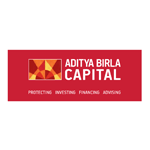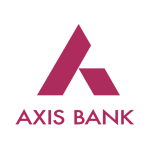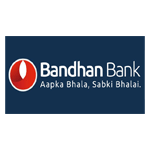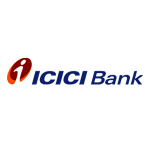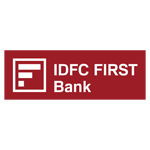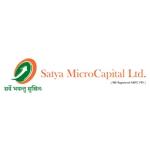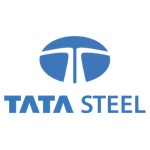- About Us
- Courses
- NSHM Business School
- NSHM Institute of Health Sciences
- Bachelor of Pharmacy
- Bachelor of Optometry
- B.Sc. – Psychology
- B.Sc. – Dietetics and Nutrition
- B.Sc. – Medical Lab Technology
- B.Sc. – Radiology & Medical Imaging Technology
- B.Sc. – Critical Care Technology
- B.Sc. – Yoga
- Master of Optometry
- Master of Optometry (BL)
- Master of Pharmacy – Pharmacology
- Master of Pharmacy – Pharmaceutics
- Master of Public Health
- Master of Public Health (BL)
- M.Sc. – Clinical Psychology
- M.Sc. – Dietetics and Nutrition
- M.Sc. – Medical Lab Technology
- M.Sc. – Radiology & Medical Imaging Technology
- M.Sc. – Yoga
- M.Sc. – Yoga (BL)
- NSHM Design School
- NSHM Institute of Computing & Analytics
- NSHM Institute of Engineering & Technology
- B. Tech. - Mechanical Engineering
- B. Tech. - Mechanical Engineering (Lateral)
- B. Tech. - Civil Engineering
- B. Tech. - Civil Engineering (Lateral)
- B. Tech. - Computer Science Engineering
- B. Tech. - Computer Science Engineering (Lateral)
- B. Tech. – Electronics & Communication Engineering
- B. Tech. - Electronics & Communication Engineering (Lateral)
- B. Tech. - Artificial Intelligence and Machine Learning
- B. Tech. - Artificial Intelligence and Machine Learning (Lateral)
- B. Tech. – Electrical Engineering
- B. Tech. – Electrical Engineering (Lateral)
- NSHM Institute of Hotel & Tourism Management
- NSHM Institute of Nursing
- NSHM Media School
- Schools & Campuses
- Beyond Academics
- Admissions
- News & Events
- Contact Us
Overview

A career in accountancy, taxation and auditing is a good choice if you are interested in finance and internal functioning of a company. NSHM is one of the top colleges to offer BBA in accountancy, auditing and tax specialization programmes in India where you will learn about fundamentals of accounting, Cost Accounting, Advanced Accounting, Management Accounting, Indian Financial System and Financial Market Operations, principals of taxation, advanced Taxing Law, Indirect Tax Law taxing laws, Public Finance & Taxation, Tax Planning & Procedure, Advanced Auditing, Advanced Accounting Packages, ERP & Tax Filing and so on.
Every company needs smooth financial operations to grow. There is a huge shortage of professionals in taxation and auditing which is an intensively complex career path. The programme is designed maintaining a perfect balance between core theory and hands-on training to prepare the students for handling multiple job responsibilities efficiently.
Programme Education Objective
- Prepare the students with knowledge and skills of accounting, tax preparation, marketing and financial advising apart from the fundamentals of business management for business accounting, taxation, and allied vocations and careers.
- Enable them to adapt to the changing policy, regulations, and norms for advancing their independent practice in various roles of – cost accountant, chartered accountant, financial analyst, tax consultant, etc. and/or professional careers by way of lifelong learning with utmost regard to ethics, business values, and social responsibility.
Career Opportunities
Managing finance is the backbone of any business entity. With the growth of GDP and new tax structures coming in place, demand for BBA graduates in India will continue to grow. Students after completing BBA in accountancy, auditing and tax specialization can work as:
- Tax Analyst
- Financial Auditing
- Business Analyst
- Financial Analyst
- Credit risk management
- Asset Management
Programme Structure
Core Curriculum
Accounting
Fundamentals of Accounting
Accounting and different accounting principles, rules of journal, ledger and trial balance, concept of cash book, pattern of final accounts of the sole proprietorship business with adjustment, rectification of errors, different concepts and methods of depreciation, provision for doubtful debt, discount on debtors and discount on creditors, issue of shares and basic concept of International Financial Reporting Standards.
Cost Accounting, Advanced Accounting, Management Accounting
“Cost structure and different cost elements, cost sheet and its different elements, aspects of labour control, labour turnover and idle time, different methods of costing which includes contract costing, job costing, process costing and operating costing.
Basic of Hire-Purchase accounting, calculation of Partnership accounts, books for Share Capital & Debentures of a business entity, recording books for Amalgamation of Companies, accounting system for Holding Companies”
Indian Financial System and Financial Market Operations
Components of a financial system and their role, instruments, participants and operation of the money market as wellas capital market, recent developments in the Indian financial institutes along with banking industry, monetary policy and functions of development banks, overview of project finance and non-banking financial institutions, understanding the financial services institutes and their functions.
Taxation
Principles of Taxation
Basic Concepts of Income tax, concept of salary & Income from House property, concept of profit & gains of Business or Profession, concept of Capital gains & Income from othersources, computation of Gross Total Income.
Advanced Taxing Law, Indirect Tax Law
Concept of Residential Status and Incidence of Tax, total income and tax liability of an Individual, HUF, Firm and AOP, system of Relief & Double Taxation, different parameters of GST, WB VAT ACT, CENTRAL EXCISE ACT, CUSTOMS ACT
Public Finance & Taxation, Tax Planning & Procedure
“Focus on public finance issues, principles of taxation and administrative, political, and economic constraints to public expenditure, understanding about public revenue (based budgeting, mid-term financial planning, budget decentralization), distribution of public funds and its effect, changing scenario in Indian taxation system and economic changes after new
industrial policy 1991”
Auditing
Advanced Auditing
Auditing standards and IFRS, Audit Sampling, auditing in computerized environment, system of Audit of limited companies, Government audit, Professional Ethics and Regulations in Auditing
Advanced Accounting Packages, ERP & Tax Filing
Concept of Inventory valuation in Tally.ERP, computational mechanism of Value Added Tax, computational mechanism of Central SalesTax, parameters of Point of Sale, computational mechanism of Job Costing
Programme Type - UG
Duration - 3 years
Minimum Eligibility - 10+2 or Equivalent with English.
Degree Awarded By -





